Introduction

As the average Christian parent watches the outside world devolve into an ever-increasing chaos and tumult, a very common question is “what can I do to prepare my kids for this demented world they are going to inherit?” And the answer to that particular question is on your bookshelf. I speak in a dark parable, but go fetch down your copy of The Hobbit, and start reading it to them.
I suppose some explanation is in order, but The Hobbit is going to address a bunch of them. And Sam Gamgee puts it well later on:
“The brave things in the old tales and songs, Mr. Frodo: adventures, as I used to call them. I used to think that they were things the wonderful folk of the stories went out and looked for, because they wanted them, because they were exciting and life was a bit dull, a kind of a sport, as you might say. But that’s not the way of it with the tales that really mattered, or the ones that stay in the mind. Folk seem to have been just landed in them, usually—their paths were laid that way, as you put it. But I expect they had lots of chances, like us, of turning back, only they didn’t. And if they had, we shouldn’t know, because they’d have been forgotten.”
The Lord of the Rings
Stories are made up of folks who wouldn’t turn back. And official narratives are composed by people who won’t stop lying. If we may borrow Churchill’s comment about architecture, healthy societies shape their stories, and then their stories shape those societies. Diseased societies cling to their diseased narratives and we see the same kind of reciprocity going on, only downhill.
And of course, in Christian societies, the central and foundational story is the one about the one who died for His people, and who then came back from the dead. That is also the template for all of our other stories.
The Nature of the Battle
Believers know that God is an Author, a Storyteller. He tells us a glorious story through the sheer fact of creation, along with the intricate windings of providence down throughout all of human history. We know for a fact that it is a story, although we have not yet been able to grasp the complete narrative thread—because it is not a straight line story. Reading providence by your own wits is like trying to read a Russian novel, a thousand times longer than War & Peace, with a hundred times more characters, all of whom have three different unusual names. And you are trying to read it in the original, and you don’t know Russian, and you are holding it upside down.
God knew that we would have trouble reading His inscrutable ways in providence, and so he gave us the special revelation of Scripture. This is better, and brings much more clarity, because the Scriptures really are perspicuous. But the clarity only comes when we allow the authoritative narratival assumptions of the Bible to crucify our carnal and very glib assumptions about how stories should go.
Robert Farrar Capon put his finger on the challenge when he said this:
“It is the wandering destiny of Adam in search of the City that is the real subject matter of the Bible. Genesis begins with the othering of the coinherence, by the creation of matter and of man in the image of God; and Revelation ends with the flowering of that image in the descent of the New Jerusalem as a bride adorned for her husband. But for 1,186 chapters in between it is a series of detours: the achievement of the City, not by the working out of a natural mystique, but by cataclysms, absurdities, and indirections. There is a line, and it goes with unerring step to its appointed end, but it is anything but straight.”
Robert Farrar Capon, Bed & Board, pp. 158-159
Propaganda That Is not Ham-fisted
But for some people, the line has to be straight, and so they try to tell the stories that way. This can be seen in what we usually call propaganda. And propaganda in this sense is always ham-fisted, by definition. That being the case, certain critics go on to argue that propaganda cannot ever have any literary or artistic value. Propaganda and true literature are are therefore mutually exclusive, or so the thinking goes.
It is a similar sort of thing as the view some people have about rhetoric. “Oh, that’s just a bunch of rhetoric,” and by this they mean that they heard someone bloviating and all they heard was the fact of the bloviation. But this is something people notice when someone is speaking poorly. If we take Quintillian’s definition of rhetoric, which is the art of a good man speaking well, it would be hard to make the same complaint. If we heard a good man speaking well, we would be much more likely to say something like that “that was compelling,” as opposed to saying “that was just rhetoric.”
It is the same sort of thing with literature. A good writer has something he wants to get across, and if he does it well, he has propagated his vision, and the artistic value of his work is not in any way lessened because of its effectiveness. Virgil wrote The Aeneid in order to praise and promote the reign of Caesar Augustus, but long after those political concerns have vanished, the literary value of the poem remains. George Orwell had a political point that he wanted to drive home with Animal Farm, a point he made with savage effectiveness. And there are profound depths in Till We Have Faces by Lewis, and he knew how to communicate them without betraying his artistry as a writer. Propaganda is simply the Latin for “that which is to be propagated,” and there is a sense in which this is just fine. There are certain things that we should want to see propagated.
“Literature exists to teach what is useful, to honour what deserves honour, to appreciate what is delightful. The useful, honourable, and delightful things are superior to it: it exists for their sake; its own use, honour, or delightfulness is derivative from theirs.”
Lewis, The Discarded Image
Every author with something to say should seek to avoid becoming didactic or preachy or tinny. Sure. Of course. But to assume that the only way to steer clear of such faults is by adopting a nihilistic relativism is the way of the fool. And when a fool sets himself to write, he will propagate what he has, which is that. By contrast, the believing writer should want to imitate the way God tells His stories—there is a true north in them, and moral lessons to be learned, but they are never trite and rice paper thin.
A Few Self-Interested Observations
A few of you have noticed that I write some fiction in addition to all the other stuff. As it appears that I am apparently doing this on purpose, and without sufficient provocation, I thought I would say a few things about each of the stories I have told in that vein, and a little bit about why. And please keep in mind what I said above about the distinction between wanting to propagate something and wanting to write what is commonly known as propaganda.
Some might say that I wrote all that high-minded stuff above as an excuse to indulge in the shameless appeal below, like I was just setting you up for a commercial about my books. That is not exactly correct, but this is because it is possible to be high-minded about commercials also. Everyone who writes does so because he wants to be read. This is just the nature of the game. So here I am, giving you a few teasers about the fiction I have written and which gratifies me when people read it. Keep in mind that I have written these books because there are certain things that I want to see “propagated” that I don’t believe can be gotten across effectively in any other way.
So if any of you have some time coming up at the lake cabin, and you need something to read while there, I offer the following as some possibilities. If you were to pick of any of these, I am simply saying that it wouldn’t hurt my feelings. And to talk about my books in this way is not to place myself in the same category as Virgil, or Orwell, or Lewis, see above. It is simply to say that these are the books that I am qualified to talk about in this way, as I was there when they were written . . .
This is about a faithful Reformed Baptist pastor named John Mitchell who is laboring in the same mid-sized city with a megachurch pastor named Chad Lester (who almost deserved it). Chad Lester was guilty of any number of sexual escapades but, as it turned out, when a huge public scandal erupted around him, he was entirely innocent of those charges. Mitchell despises Lester for reasons that were entirely righteous, at least initially, but this sentiments over time had turned a little rancid and were a light green around the edges. When Mitchell is dragged into having to minister to Lester, things become a little more festive.
Of historical interest to some, the first draft of this novel didn’t have John Mitchell in it. Every character was a complete skunk, which made the whole thing pretty dark, and would have made it difficult for faithful Christians to breathe while they were reading it. So I fixed that.
Tom Collins, no relation to the drink, was the president of Choctaw Valley Bible College, a faithful fundamentalist school in the South. The school was in slow decline, a fact which Collins recognized and was trying to reverse, to no effect. He was a widower who had a gorgeous secretary named Maria who was, unbeknownst to him, in love with him, and so while everything there was quite professional, she was wound pretty tight on her end. One morning, a drunk college student on the way home from a bender switched the flags in front of the college around, such that the Christian flag was above the American flag. Collins saw it when he came in and, on impulse, decided to leave it that way. It happened to be a slow news week all over the nation, and so the readjusted flags at Choctaw Valley became a national controversy . . . and the path forward to the surprising renewal for the college.
Easter egg alert—there is a B-story in this one that constitutes a hat tip to one of my favorite Wodehouse stories. When you find it, there are no cash prizes involved, but there will be a feeling of deep satisfaction and a sense of spiritual superiority. That second part should probably be resisted.
A scientist named Dr. Helen Gardner is a faithful devotee of the climate cult, working with the International Task Force on Climate Change. Everything is going great until she receives an email from her boss, sent to her accidentally, which reveals that her upper-ups are running the Scam of All Scams. That was bad enough, but the next day her boss puts out a hit on her to keep her quiet. She takes off on the lam, and winds up being driven around by her neighbor, who happens to be a fundamentalist Christian textual critic. In the meantime, the vice-presidential nominee for the Democratic Party has a crisis conversion to Christ, and discovers that it has a transformative effect on his entire outlook and worldview. What? Haven’t you guys ever heard about the willing suspension of disbelief?
Savannah Westmoreland is a school teacher in a small town in the Pacific Northwest in the early part of the twentieth century. She is a devout Christian, attending the Presbyterian church, but she was not always a devout Christian, a fact that is related to her belief that her past disqualified her from ever marrying the only kind of man who would be capable of making her happy. Enter Thomas Goforth, the new Presbyterian pastor, a bachelor who appears to be just that sort of man. There are other complications as well, swirling around this central complication.
This book was really the result of two things. One was the idea, “Hey, what would happen if I tried to write a Christian romance novel?” An intriguing question, I think you will have to acknowledge. The second thing was the plot twist hook that I had thought of quite a few years ago, and this was the perfect opportunity to try it out. I hope it surprises you as much as it did Savannah.
If you have seen any of my novels referred to online by my haters, it was probably this one. Unfortunately, they usually say that it is a novel about a sex doll, which is not, strictly speaking, accurate at all. It is about the legal aftermath of the destruction of a sex doll, in which the young man who destroyed it finds himself charged with murder—because the man who owned the doll identified as the doll’s husband.
The subsequent trial is set in the United States of the near future, when everything is hanging by a thread, and the trial becomes the flash point for the dissolution of America. I like to describe the book as something of a cheerful dystopia.
This one did not win any awards from Christianity Today.
This book is for the younger reader, and traces the adventures of a young man named Andrew who has found himself in another world or, speaking more accurately, in a eddy of our world. An additional complication is that while he remembers his first name, he recalls virtually nothing else. He has amnesia, and has to figure out what he is supposed to do—because it becomes increasingly clear that he was called into this world in order to accomplish a mission. That mission was to fight with a dragon, and to rescue a girl named Maggie from the firedrake.
The Monroe Family Maritime Series:
Also for younger readers, there are four books in this series thus far—Blackthorn Winter, Susan Creek, Two Williams, and Barbary Jihad. The idea of the series is to walk the reader down through American history by telling the story of the Monroe family. The first book involves pirate treasure on the Chesapeake, the second is during the run-up to the French & Indian War, the third during the American War for Independence, and the last concerns Jefferson’s battles with the pirates on the north coast of Africa.
The set up for the entire series is the pirate treasure that is discovered in the first book, and which endows the Monroe family throughout their shared history with America. The settings for the four books are 1705, 1747, 1776, and 1800. Boys in this family line find pirate treasure, thwart a British officer who was spying for the French, hear Whitefield preach, fight in some naval battles in the War for Independence, and sail with Stephen Decatur to fight with the Barbary pirates.
This is a series I would like to continue down into modern times. We will see if I can get to it.
This is a picture book for the little ones. Illustrated by my granddaughter Lucia, it is a book about a “fun dad” who returns from a business trip and spends the time regaling his children about his ludicrous adventures while on the road. Among other things, he had to deal with milk bears gathered for war, stampeding cantaloupes, and a rental car outlet staffed by pirates. And when he is done telling them his adventures, he takes them out on a jammy ride for a few of their own.
So I also write poetry from time to time. Probably the best way for me to persuade you that this is a book that you simply must have would be to give you a few samples of the doggerel found in it. Since you must realize that there is also serious poetry in there, you will come to the natural conclusion that the serious poetry is as sublime as the doggerel is . . . well, doggerely.
Here is a little something entitled Disappointment.
Cumulo-bumpus clouds threaten the picnic,
Spirits are sodden and happiness sags.
Watch as the green grass bestirs in a panic
And rain starts to smack our potato chip bag.
Or this one, called True Philosophy . . .
A poem is a thought
That always sounds good,
And lingers a while
But it doesn’t have to rhyme
(though it could).
Okay, back to the grown-ups. Beowulf is obviously not my composition, and also not my translation. I call it a “rendering,” which means that I looked at numerous English translations of Beowulf, and rendered the sense into modern English that approximates the alliterative forms of Anglo Saxon poetry, along with its system of stresses.
Then the proud prince passed by the crags,
Down steep defiles, and deep under cliffs,
Narrow, unknown, the noble king led them,
Past crags with caves, crags with trolls.
ll. 1410-1413
Comments Open
As sometimes happens around here, comments are open. Try to behave. If any of you have comments or questions about the books, I will try to respond.


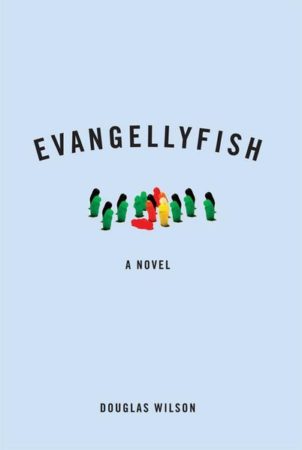
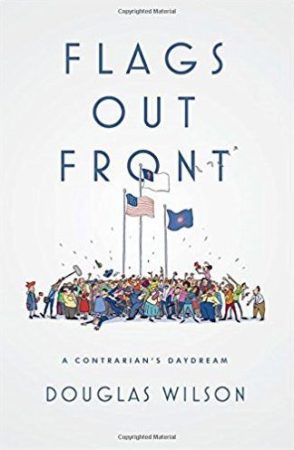

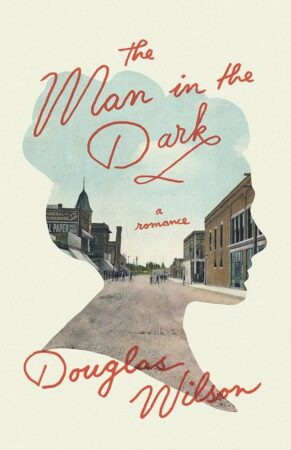
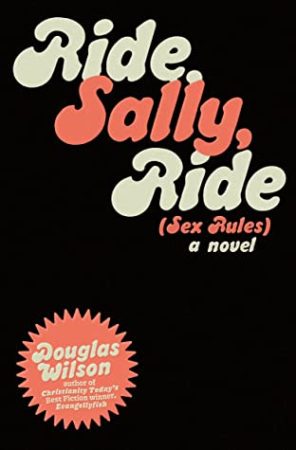
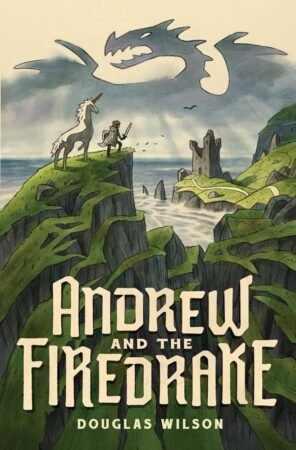
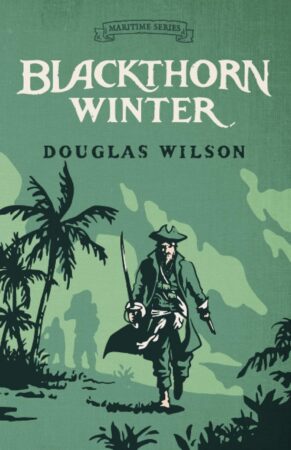
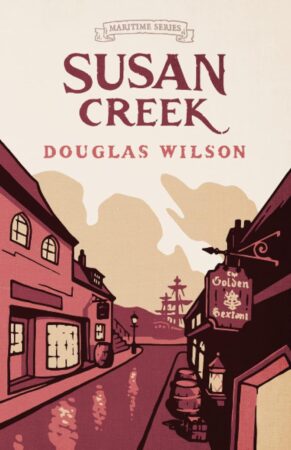
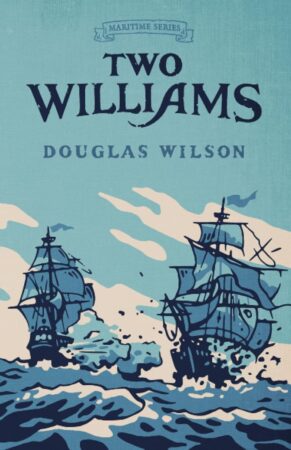
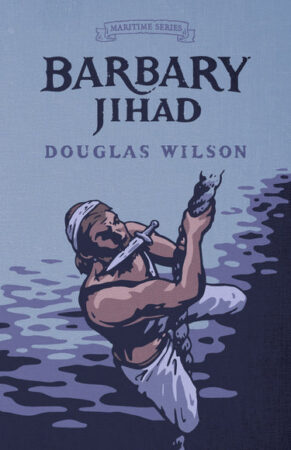
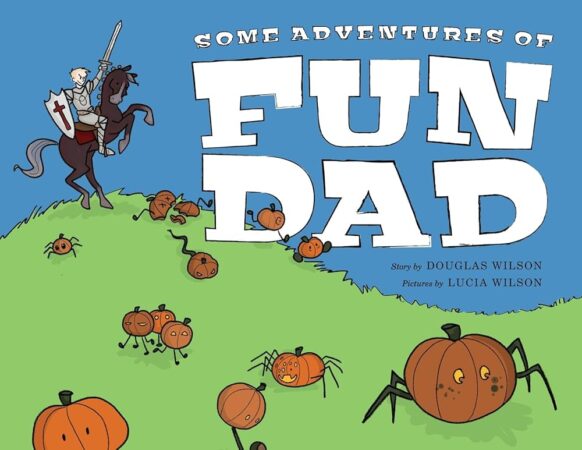

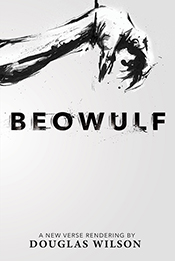
You forgot to mention that Ecochondriacs is actually a sequel to Flags Out Front. One of the college students is in both books.
If I’m not mistaken, the B story in Flags Out Front contains hat tips to two separate books by two different authors. Multitasking at its finest.
“[I]t is possible to be high-minded about commercials also” is a very helpful idea and something I’ve come to realize myself after sifting through various people’s takes on seeker-sensitive evangelism, of all things. I’m soon to be an engineer by trade, and, for better or worse, my brain tends to mingle my thoughts and intentions with a desire to methodically define problems, optimize designs, and adapt messages to suit the stakeholder. This extends to how I schedule my time, how I relate to others socially, and how I witness. But as soon as you get all analytical in one of… Read more »
Amen!
I myself am really bad at the planning far in advance, so I appreciate when there are people around who can set up those larger structures within which I can work.
“But the clarity only comes when we allow the authoritative narratival assumptions of the Bible to crucify our carnal and very glib assumptions about how stories should go.”
True enough, but…….. not a very useful thing to say.
Everyone of all Biblical interpretations make the claim of being the ones not making glib assumptions.
I think it is useful if taken not as an apologetic/polemic (we’re the ones who let the biblical assumptions crucify our glib assumptions and they’re not) but rather as an encouragement to live more deeply in the scripture so that our glibness is crucified and clarity is achieved.
Fair enough but, how would one know when they’re doing this successfully? That’s what I mean when I point out that everyone thinks they’re the ones doing this. Before coming to a conclusion on interpretation, you don’t have the anchor point of a correct conclusion to compare against, and so you can check for carnality and glibness….. how exactly? You don’t feel like you’re making carnal assumptions? Well, no one does. Especially not people being carnal.
Maybe it’s one of those things you pursue rather than arrive at? Seek to be conformed to biblical thinking, stay humble, and live with your own fallibility. There aren’t many areas in which is wise to conclude you’ve arrived, so I don’t know why this would be one of them.
Which is precisely why the advice is, if anything, dangerous. A pitfall towards sin. If I think virtue and humility are required to correctly interpret text, and I think I’ve correctly interpreted the text (as everyone does, even LGBT “Christians”), then I can falsely conclude I’ve arrived at virtue and humility. This is a result in evidence if you spend but 5 minutes looking at Calvinists and non-Calvinists arguing on the internet. I’ve directly watched Calvinists of all people overtly boast of their moral superiority and merit for having the the grace and humility to deny that they have any… Read more »
Of all the books above and I loved them all, but most of all I really loved Ride Sally Ride.
I’m so glad that you wrote about these books! I’m so thrilled to learn about the Monroe Family Maritime Series. I had no idea you wrote that.
My favorite series growing up was Gilbert Morris’s House of Winslow series. Not only did I enjoy simply reading the series, it instilled in me a multigenerational, dynastic view for myself as a father.
I desperately hope that God grants you enough years to continue this series all the way through to the modern age.